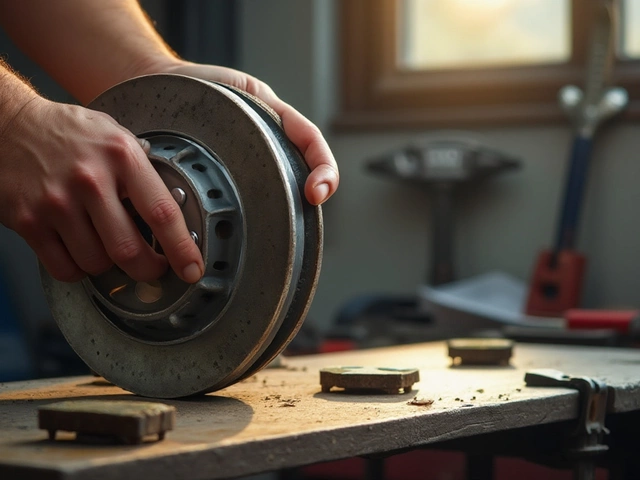Fuel Pump Check – Simple Guide to Testing Your Car’s Fuel Pump
If your engine sputters, won’t start, or you hear a whine from under the hood, the fuel pump could be the culprit. A faulty pump can leave you stranded, but you don’t need a garage to find out if it’s bad. With a few tools and a bit of patience you can run a basic test yourself and decide whether to fix it or get professional help.
Why a Fuel Pump Test Matters
The fuel pump moves gasoline from the tank to the engine at the right pressure. When pressure drops, the engine may run rough, stall at idle, or refuse to start. Catching the problem early saves money – replacing a pump is cheaper than repairing damage caused by running on low fuel pressure. Plus, a quick test lets you confirm the issue before you order a new part.
Step‑by‑Step Guide to Checking Your Fuel Pump
1. Listen for the pump. Turn the key to the “on” position without starting the engine. You should hear a soft whirring sound for a couple of seconds. No sound? The pump might not be getting power.
2. Check the fuel gauge. If the gauge shows fuel but the engine won’t start, the pump could be failing to deliver fuel. Low pressure often shows up as a lag when you press the accelerator.
3. Test fuel pressure. Connect a fuel pressure gauge to the test port on the fuel rail (usually a black nipple). Your car’s service manual will list the correct pressure range – typically 30‑50 psi for gasoline engines. Readings below the range point to a weak pump or a clogged filter.
4. Inspect the relay and fuse. Locate the fuel pump relay and fuse in the fuse box. Swap the relay with a similar one or replace a blown fuse. If the pump works after this, the electrical side was the problem.
5. Look for leaks. Examine the fuel lines and connections for drips. A leak can cause pressure loss even if the pump itself is fine.
After you finish these steps, you’ll have a clear idea of what’s wrong. If the pump fails the pressure test or you hear no whirring sound, it’s time to replace it. Otherwise, you may just need a new filter or a fix to the wiring.
Northwich Tyres Centre can help you source the right pump, filter, or relay for your make and model. Our experienced technicians also offer fitting, alignment, and full fuel system checks if you prefer a professional hand. Bring your car in, and we’ll get you back on the road quickly and safely.
Remember, regularly checking your fuel pump can prevent surprise breakdowns. A quick pressure check every 20,000 miles, keeping the tank above a quarter full, and listening for odd noises are simple habits that keep your engine happy. Stay proactive, and you’ll avoid costly repairs down the line.
 14 March 2025
14 March 2025
How to Check Your Fuel Pump
Fuel pumps are crucial for your vehicle's performance, acting as the heart of the fuel system. If your car isn’t starting or you’re experiencing a rough ride, it might be time to check the fuel pump. Learn practical tips and steps to diagnose fuel pump issues before they lead to costly repairs. Checking a fuel pump doesn't require a fancy toolkit, just some essential know-how. This article dives into straightforward methods for testing and troubleshooting your vehicle's fuel pump.
Latest Posts
-

Is It Safe to Replace Just Brake Pads and Not Discs?
-

Which Part of My Suspension is Bad? A Practical Guide
-

Can Bad Spark Plugs Cause a Car to Not Start? Here’s What Really Happens
-

How Do I Know What Size Exhaust I Need? Straightforward Guide for Perfect Fit
-

Car Radiator Costs Explained: How Pricey Are Replacements in 2025?
Tags
- car maintenance
- engine oil
- spark plugs
- brake pads
- engine performance
- vehicle maintenance
- spark plug replacement
- windshield wipers
- fuel pump
- suspension parts
- clutch replacement
- oil change
- clutch kit
- car suspension
- car performance
- air filters
- car radiator
- exhaust systems
- fuel pump replacement
- engine misfire

0